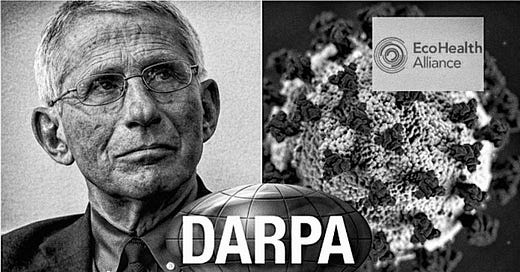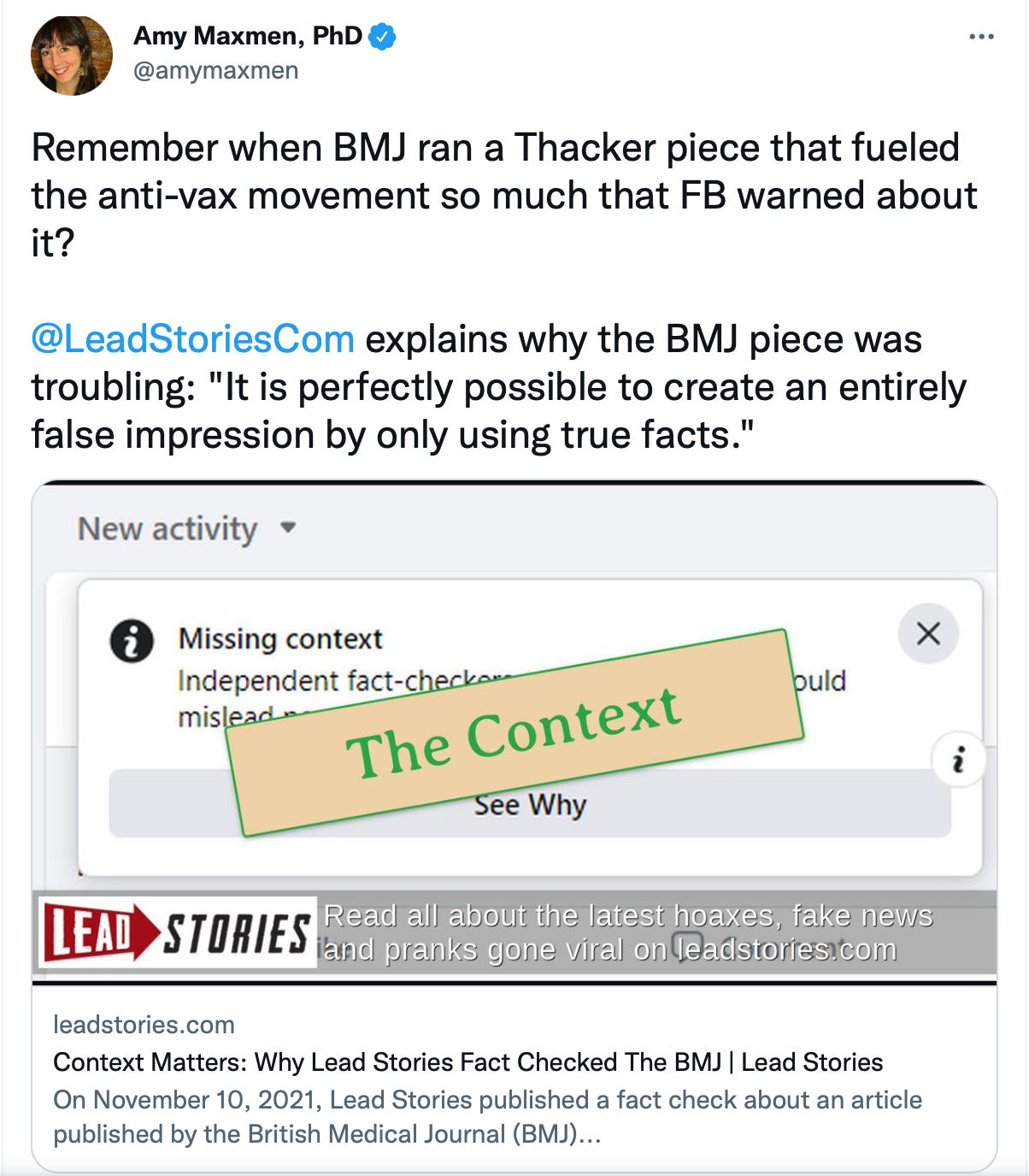DARPA Less Than Candid About Funding for EcoHealth Alliance, According to Emails
Why can’t the Biden Administration tell the truth about the nonprofit that has funded the Wuhan Institute of Virology?
5 minute read
The Defense Department research agency called DARPA was caught off guard last September when documents leaked showing that Peter Daszak of the EcoHealth Alliance had submitted a 2018 grant proposal to collect bat viruses in China and then create and study chimeric versions—making the viruses more transmissible or virulent. Reviewing the proposal, a DARPA official recommended not funding the research and noted the proposal involved “gain of function” studies and would need a risk mitigation plan if funded in the future.
In a statement at the time to Newsweek, DARPA denied financing any activity associated with EcoHealth Alliance or the Wuhan Institute of Virology. "DARPA has never funded directly, nor indirectly as a subcontractor, any activity or researcher associated with the EcoHealth Alliance or Wuhan Institute of Virology."
DARPA gave a similar statement to The Blaze:
[I]nformation contained within bids is considered proprietary and can only be released by the bidder. That being said, DARPA has never funded directly, nor indirectly as a subcontractor, any activity or researcher associated with the EcoHealth Alliance or Wuhan Institute of Virology.
However, internal documents made public through a freedom of information act request to the University of California at Davis (UC Davis) make clear that DARPA has funded EcoHealth Alliance activities. Around the same time that EcoHealth Alliance (EHA) submitted their proposal to DARPA in 2018, UC Davis researchers were discussing a pandemic preparedness program they run and the year-five budgets for their partners including EHA, Metabiota, and the Smithsonian Institution.
“So, in the EHA-specific budget workbook, you will see text boxes in some countries that include the additional justification provided by EHA,” emailed UC Davis’s Elizabeth Leasure.
After ticking off various EHA budget justifications, she wrote that a DARPA award would start up in October. Ms. Leasure then added, “Some current staff/other costs will be moved to DARPA once the subaward is in place, so those freed up funds could be reallocated to other countries or testing, as needed.”
In an email responding to Ms. Leasure, UC Davis researcher Jonna Mazet wrote that the primary cause for the increase in EHA’s budget was personnel costs, adding that Peter Daszak’s “compensation increased by 24% from last year.”
Who to believe: these emails or your lying eyes?
Desptite emails showing UC Davis researchers paid EcoHealth Allliance with DARPA monies, the research agency has their story and they’re sticking to it. “Consistent with DARPA’s previous statement, the agency has never funded EcoHealth Alliance directly, nor indirectly as a subcontractor,” wrote a DARPA spokesperson to The DisInformation Chronicle.
These latest revelations add to a growing body of evidence that the Biden Administration is not interested in reviewing activities by the EcoHealth Alliance. In 2020, the NIH created a thunderstorm of disapproval when it shut down an EcoHealth Alliance grant; 77 Nobel Laureates criticized the Trump administration for pulling the coronavirus research. “We believe that this action sets a dangerous precedent by interfering in the conduct of science and jeopardizes public trust in the process of awarding federal funds for research," they wrote.
This October, 18 months after the grant was terminated, the NIH notified Congress that EcoHealth Alliance had failed to comply with the timely submission of a research progress report for the grant. Since the NIH terminated that grant in 2020, the agency has awarded EcoHealth Alliance $4.2 million in funding for 4 different projects.
Last year, the NIH’s Anthony Fauci misled Congress during testimony about his role funding research at the Wuhan Institute of Virology through an EHA subcontract. Finally, the Inspector General for Health and Human Services told The DisInformation Chronicle last month that they were not investigating EHA, despite receiving multiple criminal referrals about the nonprofit from both congressional committees and the NIH.
Personal News: The Association of British Science Writers (ABSW) announced I am a finalist for the Steve Connor Award for Investigative Science Journalism, for a BMJ investigation on problems with Pfizer’s COVID-19 vaccine clinical trial.
That article “Covid-19: Researcher blows the whistle on data integrity issues in Pfizer’s vaccine trial” was picked up by over 100 media outlets and has the 2nd highest score ever for Altmetric.
Of course, I was highly criticized for writing the article by online biopharma troll David Gorski, who accused The BMJ of “conspiracy mongering” a favorite Gorski label applied to anyone not cheerleading for biomedical companies. Gorski’s frequent collaborator, physicist David Robert Grimes, then tweeted that I was “anti-vaxx.”
And Nature Magazine's Amy Maxmen tweeted to her followers that I "fueled the anti-vax movement."
I was interviewed about Pfizer’s COVID-19 vaccine clinical trial and this scicomm nonsense to label people “anti-vaxx” and “conspiracy theorists” on TNT radio with Trish Wood last Saturday. You can listen to our discussion, by clicking here.








Congrats on being shortlisted, well deserved!
Congratulations on "fueling the anti-vax movement," Paul!
The thing I love most about the 'reporting' around these issues is the fact that no one ever brings up how your article has one of the highest Altmetric scores of all time [Top 2 out of 20.6 million].